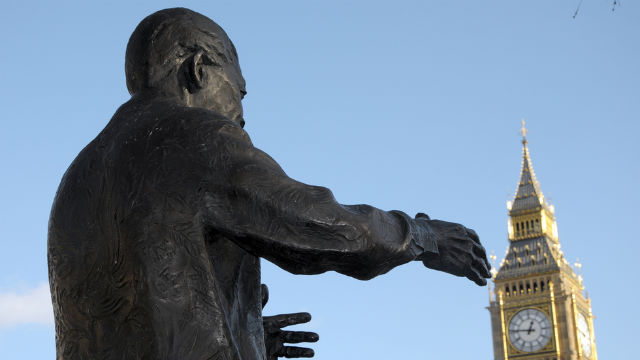Philosophy Is A Syndicate

IN THE old days of the three European missions – imperialism, colonialism, and orientalism – scholars insisted on the existence of Asian “philosophies” and, naturally, they called Asian thinkers “philosophers.”
The world could entertain such fancy claims because those were immoral, lawless, and unscientific times. Today, scholarship knows better. There are two major problems with the “philosophy” in Asia theory.
First, no matter how much the West spends on indoctrination, there is no such thing as “philosophy” – this word, concept, or school – in the writings and historical records of India, China, or Japan prior to the arrival of the Europeans.
Second, historians largely agree that “philosophy” originated as a Greco-Hellenic school of thought, usually associated with Plato. The school became a movement and later joined forces with Christianity, prosecuted the sages (because the highest wisdom was now supposed to be with God, not man) and shattered all competing schools. In short, the philosophers became what social scientists would call a syndicate.
What Does The East Have?
Philosophers are very different from bodhisattvas, buddhas, rishis, phirs, imams, ayatollahs, junzi, xianren, or shengren of the Asian traditions. None of the latter concepts, to my knowledge, has ever been adopted for Western thinkers, yet, evidently, we are constantly told that there are “philosophers” all over Asia. Think. What is that probability? Whose version of history are we taught?
During the last 300 years quite a few European linguists, translators, and, yes, philosophers – among them Immanuel Kant and Georg Hegel – have pointed to the fact that there was no philosophy in China, just like there were no Confucian or Buddhist schools in Germany. But no one paid attention. The Germans would never call their philosophers “shengren,” yet at the same time the Chinese were always expected to call Confucius, who is a shengren, a “philosopher.” Thus came into being a perfect 100% cultural trade deficit.
The only reasonable way, I think, in the spirit of the rise of universal cultural property rights, to represent Asia truthfully in world history is a) to use its correct names (that’s called the law of reciprocity) or, b) in case the imperialist powers refuse to recognize non-European archetypes of wisdom, at least they could stop using a Hellenic brand to label Chinese originality. They could instead apply more neutral vocabulary such as “thinkers” or “scholars.”
Academic Imperialism Still Rampant
The vast majority of our academics, however, profit immensely from cultural imperialism – however excessive and absurd this is in our age of knowledge. To be true, the advocates of a “Chinese Philosophy” are celebrated like conquerors who won over foreign territory. They are often promoted and sponsored by Western governments, the Church, educational institutions, and other benefactors (e. g. Departments of “Chinese Philosophy”) whose aim it is to maintain a Western-centrist worldview. Needless to say, Chinese scholars who help the West to steamroll cultural China are understandably given lucrative jobs and paychecks.
It is more than just a cultural bias when Cambridge University Press, a former collaborator of the British Empire and colonialism, is still publishing books on China on Hellenic terms such as “Chinese Philosophy,” or “Introduction to Chinese Philosophy.” By contrast, Harvard University Press prefers more neutral titles such as “The World of Thought in Ancient China.”
But Harvard is an exception, not the rule. The Western mainstream, including Western publishing flagships such as The Economist, The New York Times, Science Magazine, and Wall Street Journal all have strict language policies: they avoid foreign terms (wherever they can) in order to keep their articles pure and easy to digest.
Ironically, some of the above corrupt publishers even glorify the fact that their guidelines for “effective writing” are taken from George Orwell – the author of Nineteen Eighty-Four, a manifesto about the evils of news-speak, thought police, and the totalitarian state.
To use the analogy from racism: it’s like reserving the seats in a bus for white people. Clearing the upper decks of globalization from Asian words and categories apparently is big business and a booming industry.
Good Bye, Cultural Pluralism
A Harvard professor and department head who is familiar with Eurocentric tendencies being the neck-pain of academia once told your author that philosophers and missionaries “can call the Chinese thinkers whatever they want.” However, they are very likely to call them “philosophers” and “saints.” Why, because that’s how winning is done!
And now look how beautifully the West has won, indeed. All over the world people are awarded “PhD degrees” – doctors of philosophy – even if philosophy had nothing to do with it. Few know what the East had had before, and even fewer care any more.
Meanwhile, Western publishers require all authors to prepare their “submissions” (a proper name for this sort of cultural prostration) and familiarize themselves with all those Western taxonomies. Because everything else is just not fit for knowledge.
We live in the 21st Century and are told we are free, yet no one has liberated culture so far, with the result that foreign names and categories can be violently discriminated against. Categories from Islamic, Hindu, or Chinese traditions are seen as a threat to the West’s sovereignty over the definition of human thought. We have come to the point where Western journalists compose hundreds of China reports without ever using a single Chinese word in it.
One School To Rule Them All
So that’s the story about how Plato’s school of Philosophy triumphed over Eastern thought and, by extension, how we all came to live in the year 2013 of our Lord, Jesus Christ, and how (almost) all major thinkers in the world have been made into “philosophers.” It’s like a gigantic club membership scheme.
We scholars of history are servants to the master culture, the West, and we are openly coerced into compliance; or else we are going to perish. Be that as it may, for the sake of our humanity, a few of us should cherish awareness about how such a crass monopoly came into being.
Plato had always designed for the philosophers to rule. Soon we might be looking at their dictatorship.
Image credit: Iodrakon/Shutterstock.com





